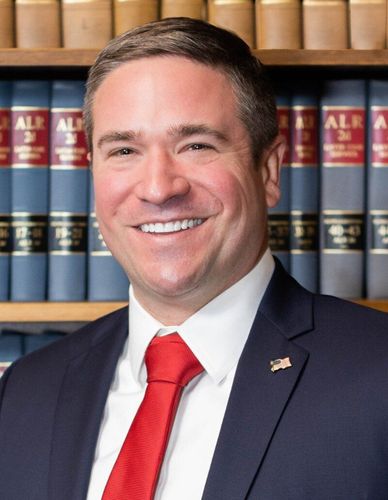Missouri AG: Proposed California LCFS amendments will harm soybean, corn farmers

SOURCE: Missouri Attorney General Andrew Bailey
November 5, 2024
BY Erin Krueger
Missouri Attorney General Andrew Bailey on Nov. 1 sent a letter to the California Air Resources Board demanding the agency rescind proposed changes to its Low Carbon Fuel Standard. CARB is expected to vote to adopt LCFS amendments on Nov. 8.
CARB has proposed numerous amendments to update its LCFS program, including those that aim to cap the use of soybean oil, canola oil and sunflower oil in the production of LCFS-compliant biomass-based diesel fuels.
Advertisement
“As the Attorney General of the State of Missouri, in which agriculture is the backbone of our economy, CARB’s proposed amendments stand to inflict great harm on Missouri’s corn and soybean farmers and our robust biofuels industry,” Bailey wrote.
“CARB’s proposed amendments, singularly focused on biofuels, will present serious risks to Missouri farmers and biofuel producers,” he added. “I take particular issue with your agency’s assertion that the biofuels industry is in a period of ‘rapid expansion of production and feedstock demand,’ which simply does not match the present depressed market conditions facing our farmers. Through this proposal, CARB plans to prevent Missouri-made biofuels from entering the California market by setting an arbitrary 20 percent cap on soybean oil allowed to generate credits under its LCFS program; use of an outdated model to score indirect land use change (ILUC); and enforcing stringent sustainability reporting requirements that will extend to the farm 2 gate, including the requirement for our farmers to submit potentially sensitive information about their operations through deforestation-free attestations.”
Advertisement
In his letter, Bailey stresses that CARB has proposed to change LCFS regulations without conducting public workshops or completing a formal rulemaking process. He also called the agency’s plans to allow CARB’s executive officer the ability to assign more conservative ILUC values based on land cover, crop yield and emissions data “troubling,” noting that Americans impacted by CARB’s policies deserve a chance to be heard.
“Missouri farmers have a long history of environmental stewardship and should be viewed as a key part of improving air quality in California and throughout the country,” Bailey wrote. “On their behalf, I strongly urge CARB to halt its proposed LCFS amendments and convene an expert working group to promote policies that will achieve the agency’s goals without causing economic harm to our state’s agriculture industry.”
A full copy of the letter is available on the Missouri Attorney General’s website.
Related Stories
The USDA has announced it will delay opening the first quarterly grant application window for FY 2026 REAP funding. The agency cited both an application backlog and the need to disincentivize solar projects as reasons for the delay.
CoBank’s latest quarterly research report, released July 10, highlights current uncertainty around the implementation of three biofuel policies, RFS RVOs, small refinery exemptions (SREs) and the 45Z clean fuels production tax credit.
The USDA significantly increased its estimate for 2025-’26 soybean oil use in biofuel production in its latest World Agricultural Supply and Demand Estimates report, released July 11. The outlook for soybean production was revised down.
U.S. fuel ethanol capacity fell slightly in April, while biodiesel and renewable diesel capacity held steady, according to data released by the U.S. EIA on June 30. Feedstock consumption was down when compared to the previous month.
The U.S. EPA on July 8 hosted virtual public hearing to gather input on the agency’s recently released proposed rule to set 2026 and 2027 RFS RVOs. Members of the biofuel industry were among those to offer testimony during the event.
Upcoming Events










